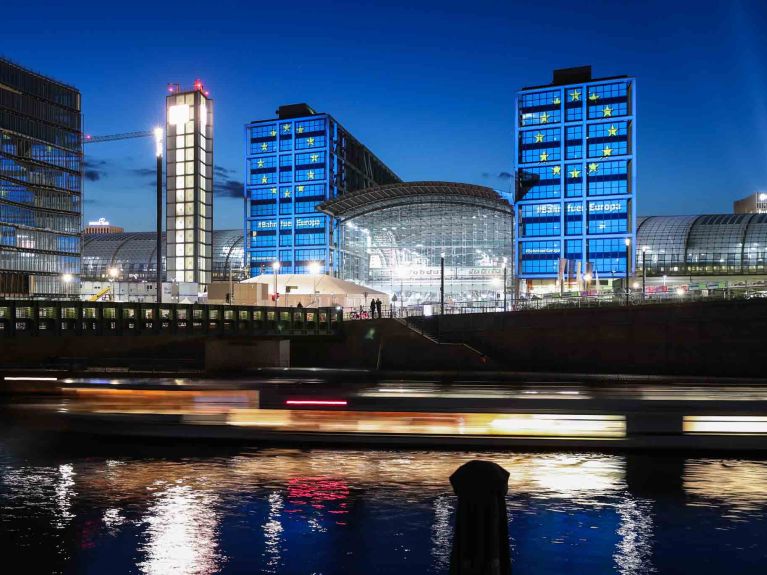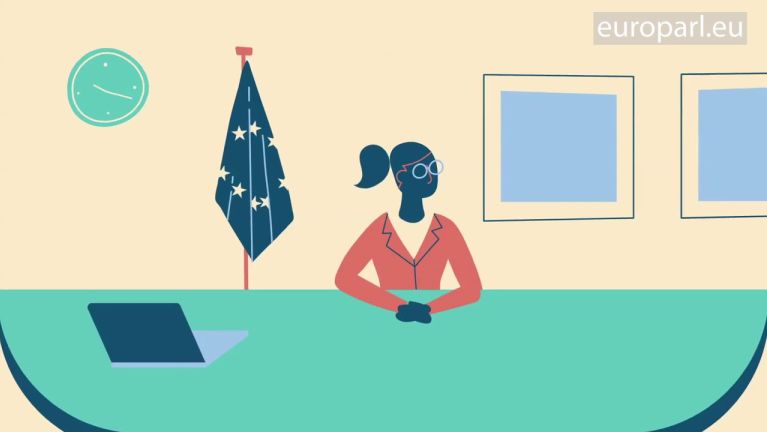What does the European Parliament actually do?
The EU’s most important legislative body will be re-elected at the end of May.

The vast majority of the 751 members of the European Parliament are proud to point out that they are part of a unique body. The parliament, which has been directly elected by citizens in all the member states of the EU since 1979, is the only democratically legitimized supranational institution in the world. The members make laws on behalf of 512 million citizens in all 28 EU member states.
If the United Kingdom leaves the EU, the number of MEPs will drop to 705. At the moment, though, it looks as if, on May 23, the British electorate will be able to vote again in the European elections — or "will have to," depending on one's attitude toward Brexit.
Right wing gains ground
Each legislative period lasts five years, and if Britain does participate in electing the next parliament — the ninth — this will play a crucial part in establishing its make-up. There are likely to be a great many EU skeptics and right-wing populists among the 71 MEPs the United Kingdom would be sending to Brussels, which would increase the strength of the right-wing groups in the parliament.
The most recent projections assume that, with the British MEPs, right-wing populists may end up with around 23% of the seats in the European Parliament. Hungary's governing party Fidesz is expected to win 13 seats. If it then switches allegiance and joins a new right-wing populist umbrella group, this group could command 25% of the seats. With that, it would overtake the Christian Democrats and become the largest group in the European parliament.
The number of right-wing populists and EU skeptics has risen steadily in recent years. In the 2014 elections, the three groups representing these camps held 20% of the seats. In the previous elections in 2009, the figure was just over half that, at only 11%.
Dieses YouTube-Video kann in einem neuen Tab abgespielt werden
YouTube öffnenThird party content
We use YouTube to embed content that may collect data about your activity. Please review the details and accept the service to see this content.
Open consent formEqual rights in European legislation
Until now the two largest of the eight groups in the European Parliament, the Christian Democrats and the Social Democrats, have worked together in a sort of undeclared grand coalition. In future, they may need the Liberals or the Greens to join them in order to form a majority. Informal coalitions are important for the smooth running of the parliament. During this last legislative period, it passed more than 1,100 laws, which the national parliaments of the member states then enshrine into their respective national legislation.
The European Parliament is the Second Chamber of the legislature. It is almost on a par with the First Chamber, the European Council, in which the member states are represented. As a rule, the EU Commission's proposed legislation is negotiated between the Council and the Parliament in an accelerated negotiation process (trilogue procedure), then submitted to the plenary session.
Over the years, MEPs have gained a lot of additional power and authority. "Back then, in 1979, we were nine countries and we didn't decide anything. Today we are 27, or 28, and we decide everything,” says Elmar Brok (CDU), currently the longest-serving European MP. "Today, the European Parliament is more powerful than some national parliaments. That's why it's wrong to say the European Parliament needs strengthening. The European Parliament is strong!”
Commuter parliament
The European Parliament is a traveling circus. Many of its members are strongly critical of this. It has three seats: Plenary sessions take place every four weeks in the French city of Strasbourg, the committees and parliamentary parties meet in Brussels, and the parliamentary administration is based in Luxembourg. The parliament has fully operational plenary assembly halls in all three cities. However, the one in Luxembourg is almost never used.
Despite numerous attempts by parliamentarians to do something about reducing this expenditure, they have always been blocked, especially by France, which is categorically opposed to relinquishing Strasbourg as the primary seat of the European Parliament. The former French president Nicolas Sarkozy once said that he too was in favor of the parliament having only one seat — but it had to be Strasbourg. It could economize by scrapping meetings in Brussels, he said.
Freely elected, but not equal
More than 200 national parties are represented in the multilingual European Parliament. They are currently organized into eight parliamentary parties or groups. Electoral law is not standardized; all member states organize elections according to their own rules. Some have a threshold clause, while others — including Germany — do not.
Germany's Federal Constitutional Court has criticized the fact, while that the European elections are free and general, they are not "equal," in the legal sense. The vote of someone in the small state of Luxembourg, for example, counts more than that of a voter in the largest state, Germany. Luxembourg sends six MEPs; Germany sends 96. Measured in terms of the number of eligible and actual voters, that means Germany has far too few.
Voters' interest in this legislative body, unique in all the world, has been waning steadily since 1979. Back then, turnout was still at 63% across the EU. In 2014, the average turnout was just 42%.

